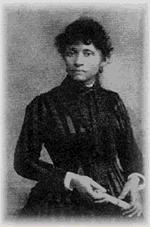

|
Who Were the Molly Maguires? Who were the Molly Maguires? So much is said and written about them at the present time, and so little seems to be known of their origin, aims and objects, even by the labor press, who, aping the capitalist press, speak of them as "bandits," thus implying that they were marauders or terrorists of some kind, composed only of murderers who the Pinkerton thug, McParland, broke up, getting a number of them hung, thus doing a great service to society at large. Now, really, who were the Molly Maguires? Let us cross the ocean to the soil of Ireland to ascertain who they were. In the fifties and sixties, and into the seventies of the last century, everyone at all familiar with history is aware of the terrible conditions prevailing among the masses in that landlord-cursed country. They know how gaunt famine stared the people in the face, yet the landlords exacted their very hearts' blood. When the tenants couldn't pay rent for the abominable little shacks which they occupied, owing to their poverty, caused by the failure of crops, they were flung bodily out, together with their belongings upon the highways and, to prevent their entering the shanty, it was razed to the ground. A gang of fellows went along with the constabulary, carrying crowbars for the purposes of destroying the huts, just as soon as the families had been thrown out. These men were called the "crowbar brigade." On a certain day in 1866, a number of constables and the "crowbar brigade" started out on a mission of eviction. In the course of their rounds, they arrived at the shanty of a poor tenant by the name of Pat Maguire, and proceeded to throw his family out. Mrs Maguire was in child-bed confinement, but this made no difference to the hard-hearted villains, they proceeded to throw her and the newborn baby out. This conduct enraged the neighbors so that they rallied to the aid of Maguire, beat the constables and the "crowbar brigade" off, and reinstated the man's sick wife and baby in the "home." From that time hence, all who opposed the encroachments of the landlord's hirelings were called "Molly Maguires." Between the years, 1848 to about 1870, thousands of Ireland's sons and daughters emigrated so that there were more Irish in this country than there were in Ireland. Thousands of these immigrants found their way into the coalfields of Pennsylvania. Up to this time, the coal mines had been operated by Americans whose standard of life was higher than that of a lot of famine stricken people. The Americans, for a time, made a feeble resistance to the encroachment, but the mine owners wanted cheap labor, regardless of nationality; the Americans had to go. In the course of a few years, a still cheaper class of labor began to find its way into the coal fields, viz., the Slavs, Hungarians and others from Southern Europe. The Irish quite naturally objected to being thus displaced. They formed some kind of a Molly Maguire organization in the anthracite regions, for the purpose of keeping out those who were under-bidding them in the labor market, and in a measure, they were succeeding; this enraged the capitalists, but they did not seem able to get into the councils of the "Molly Maguires," so they employed McParland (who is just now posing as a great factor in running to earth "conspiracies" in Colorado and Idaho). This McParland went into the coal mines as a miner. For two years he worked with the miners as one of them; the illustrated book, issued by the Pinkertons some years ago, showed him as chief mourner at the funerals, best man at the weddings, a swell fellow well met with the men; drinking whiskey from the same bottle, and all the time weaving strands of hope that were to hang them! At last a number of the most active men were arrested. McParland produced his "evidence", a capitalist jury did the rest. Thirty-eight miners were executed, thirteen in one day. The men, having no organization to defend them, were soon frightened into slavery, where they remained for a quarter of a century or more, on until the rise and strength of the United Mine Workers of America. Such in brief is a history of the "Molly Maguires," which was an organization (if organization it could be called), attempting in a poor, weak, stumbling way, to combat the greed of capital. And such, also, is a brief story of the past villainy of the villain McParland, who now turns up to swear away the lives of other innocent men: Moyer, Haywood and their comrades. With such a hardened, conscienceless wretch as this McParland will have a hard fight for their lives; they will need lots of money—many thousands of dollars. The Liberator begs all lovers of justice and fair play, regardless of party or creed, to send as much money as they can possibly share, to John M. O'Neill, Pioneer Building, Denver, Colorado. |